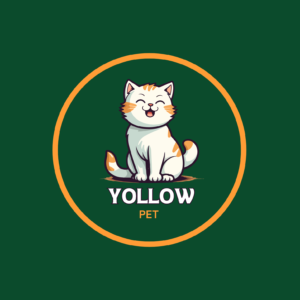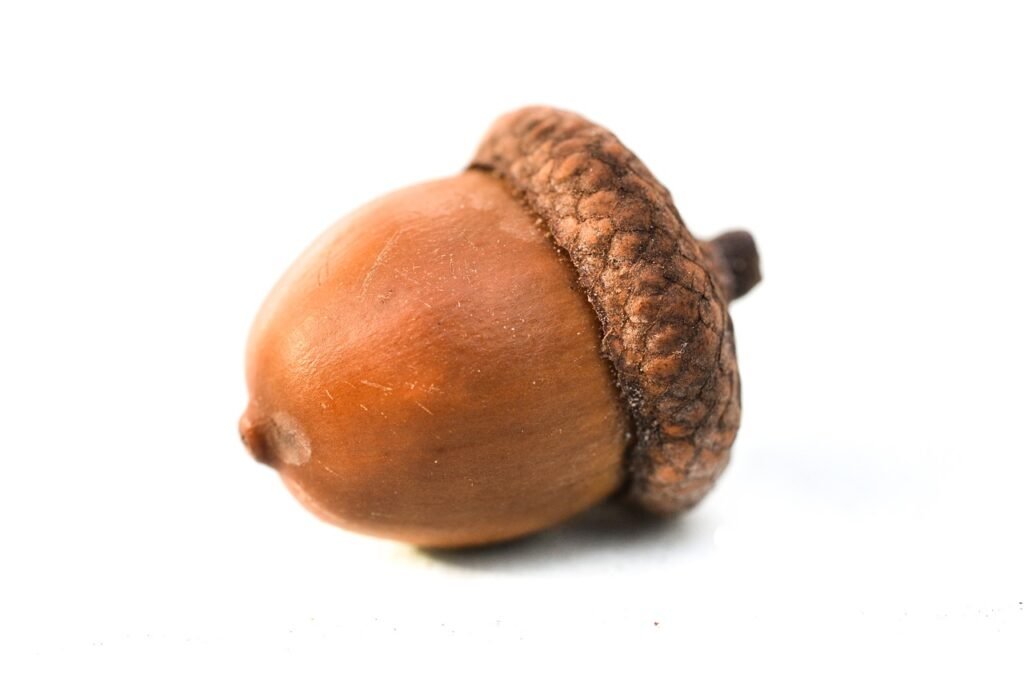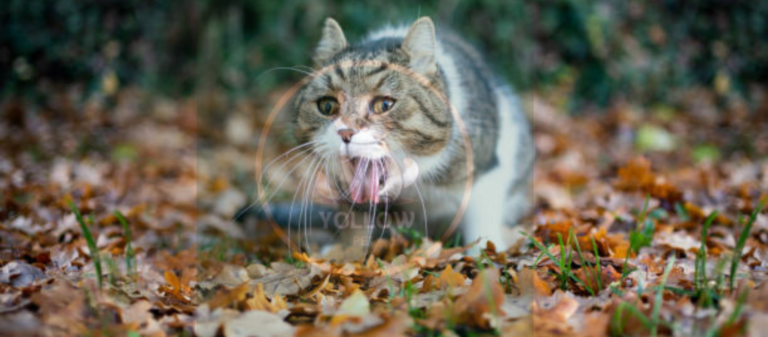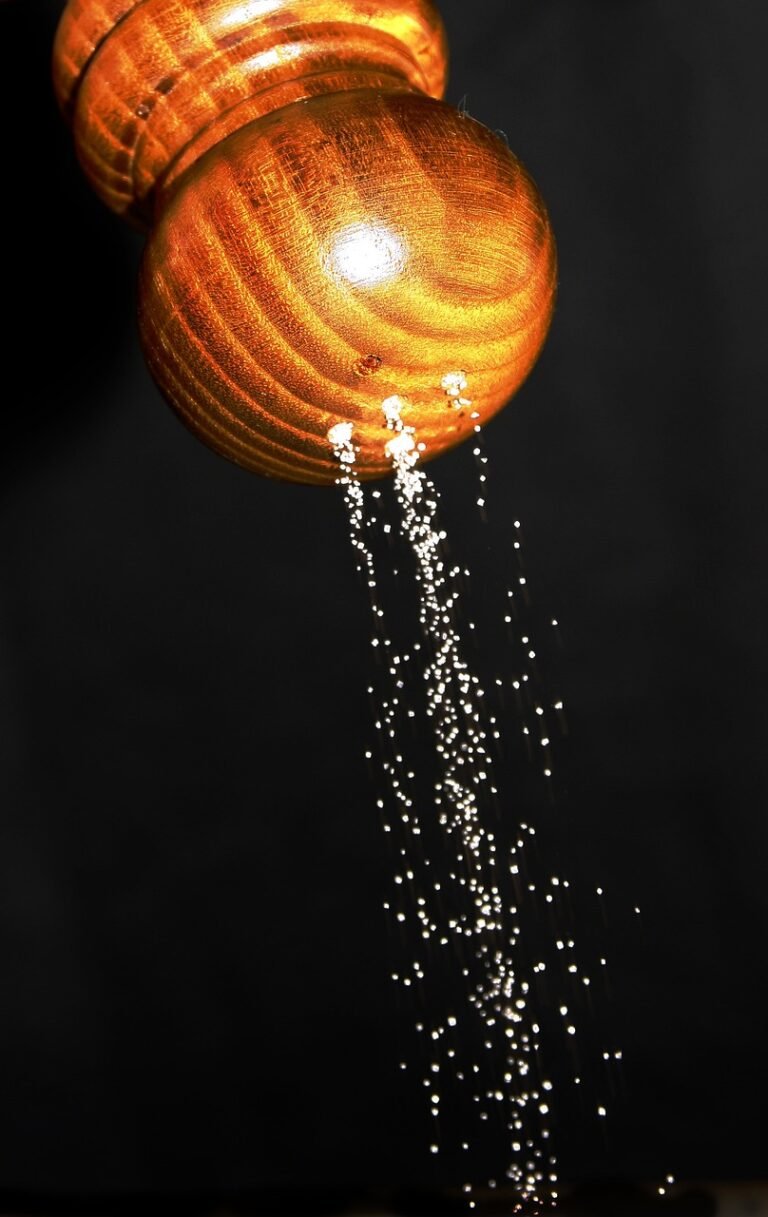Can Dogs Eat Acorns
Introduction
I agree that it is important to know the different things in your environment that can be dangerous to your dog. This is because acorns are a nut from oak trees and they fall to the ground in autumn, which means your dog has access to them if they choose. But can dogs eat acorns? Or are they dangerous and may cause serious health consequences? Acorns And Dogs: Dangers, Symptoms Of Poisoning, and What To Do
What Are Acorns?
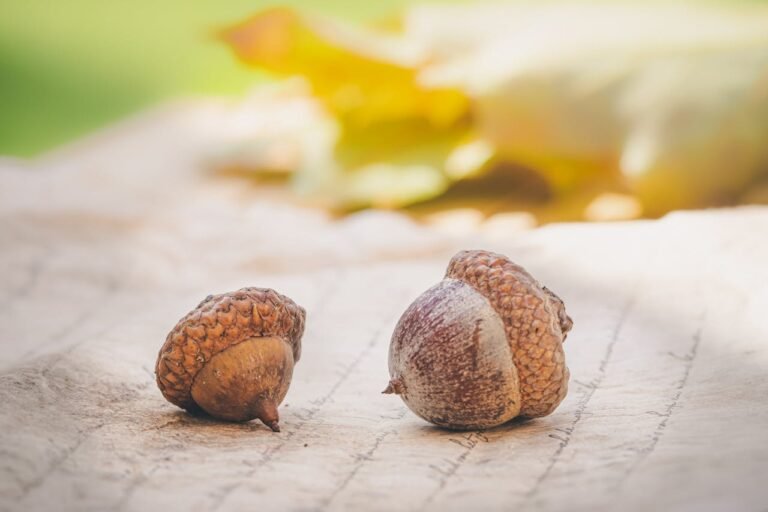
An acorn is a nut in the Quercus genus of oak trees. The shell of these nuts is extremely hard but the seed inside is very soft. Acorns come in various shapes and shades, depending on the oak species they belong to; however, most of them are oval with a trademark cap that encloses one-third or half portion of the nut. For this reason, acorns are an essential food for squirrels and are often stored and then consumed throughout the winter when other foods may be scarce.
Whether or not acorns harm dogs. The key to understanding this is in what acorns are made up of and how their nutritional profile interacts with a dog’s digestive system.
Can Dogs Eat Acorns?
In short, do dogs eat acorns? So while eating one acorn might not hurt puppies in any appreciable way it is still usually a good idea to prevent your dog from consuming them. The chemicals in acorns may be poisonous to dogs, and as little as one handful can cause health problems. Curiosity, the desire of acorn’s taste or chewing on something Dogs find attractive are reasons why dogs might be attracted to Acorns. But the potential harm is far greater than any good, so it is necessary for pet dog owners to keep acorns away from their pets.
why are acorns dangerous for dogs?
Acorns are toxic to dogs because of the chemical compounds found in acorns themselves. Tannins are naturally found in acorns and can be toxic to dogs when eaten in large quantities. Tannins are present in many different types of plants and make them less palatable to animals. The tannins in acorns can irritate the gastrointestinal tract and dogs are at risk of developing serious health problems when they eat them.
Other toxic or even lethal substances are found within acorns, too — these vary between oak species and the environment but include hydrolyzable tannins. The case surrounding the nut can also result in a choking hazard or block a dog’s digestive system, which ultimately may require surgery.
Can Dogs Eat Acorns and What Happens if They Do?
Whether the dog survives or not after eating acorns will depend on a number of factors such as how big your pup is, how many he ate, and what kind of oak tree they came from. Dogs may only have mild symptoms, or the ingestion can cause significant health complications. Some problems that can be caused by a dog eating acorns include:
Gastrointestinal Irritation: Acorns may also cause GI irritation including vomiting, diarrhea or abdominal pain. This is commonly accompanied by irritation from the tannins in their digestive systems.
Poisonous Responses: Tannins have some more poisonous reactions such as kidney harm. When a dog has ingested many acorns, the tannins can cause kidney failure is a serious condition that necessitates immediate veterinary attention.
Chokes and Blockages: The hard shell of acorns could be a choking hazard particularly for calibers, while eating the walnut might cause an obstruction from its digestive tract leading to acute ailments. When otherwise consumed whole, acorns can lead to blockages in the esophagus, stomach, or intestines which is a medical emergency and should be treated immediately for survival.
Chronic Ingestion of Acorns: Occasionally, with longer-term ingestion over time these nuts can also lead to liver and kidney damage that might not be obvious right away but might cause chronic disease in the long run.
Signs Your Dog Has Acorn Poisoning
Early identification and treatment of acorn poisoning symptoms is very important. The following are some common symptoms that your dog may have eaten acorns and is toxic.
First and foremost, Vomiting: Once a dog eats acorns, a reaction is set off inside the body that causes it to want to rid itself of this toxic substance first.
Loose Stools: Tannins can be rough on the lining of the intestines in some cases leading to loose stools, and even blood if severe enough.
Abdominal pain: Dogs experiencing abdominal pain may whine, hold their bellies in an uncomfortable position, or refuse to move.
Decreased Appetite: Dogs that suffer from acorn poisoning will have no hunger or thirst, and then become dehydrated.
Lack of Creativity: If you suddenly find yourself low in energy and inspiration, it could mean that your body is not as healthy or oxygenated as before.
Salivating too much: Your dog may drool more than usual from the toxins
Jaundice: In some more severe cases of liver damage, jaundiced eyes and gums may develop.
The symptoms can begin quickly (within hours or a few days) after ingestion. The amount of acorns eaten and the size/health of your dog will affect how severe his symptoms are going to be.
First aid and initial actions
If you think your dog may have eaten acorns, it is important to act swiftly in order to reduce any potential harm. Here are some initial steps for you to consider:
Take Away Access to Acorns – When you see your pooch eating acorns, get them out of there so they can no longer eat anymore.
Watch for Symptoms: Closely monitor your dog for symptoms of GI distress, lethargy or other acorn poison-related findings.
Call Your Veterinarian: If you believe your dog has eaten acorns, it is a good idea to contact the veterinarian even if they are not showing any symptoms. Your vet can advise on what to do next and whether a trip in is warranted.
Induced Vomiting: Do not induce vomiting unless otherwise directed by a veterinarian. Occasionally, vomiting can be induced to bring the acorns up before they are assimilated into the body. They could be — but only with veterinary supervision, so keep complications at bay.
Fresh Water: Provide a Home With Fresh Drinking To Help The Dog Remove All Impurities And Make Sure He Will Stay Hydrated.
Acorn Poisoning in Dogs: Conclusion and Prevention. Veterinarians confirm the acorn poisoning diagnosis according to the typical symptoms, medical history, and, if available, proof of acorn consumption. If the signs of poisoning are present, the practitioner will order diagnostic tests, such as blood and urine tests, and imaging, to estimate the level of poisoning and the available blockages. In specific cases, supportive nuisances could be sufficient – for example, protective fluid therapy against dehydration in case of diarrhea and vomiting; conversely, in hospitalized animals, intravenous fluid therapy and measures to shield the liver and kidneys might be necessary. The prognosis for acorn-poisoned dogs depends on the amount of poison and an appropriate interval between poison and treatment. Most cases recover rapidly, with a full recovery with proper treatment; still, the occurrence of poisoning death could be between 50-75%. The best way to prevent the risks of acorn poisoning is to prevent the dog from ingesting acorns in the first place: keep an eye on the animal during walks, clean up the yard, and train with voice commands.
Give Them Toys: Give your dog toys that are safe to chew on.
Fence Areas: If you can, fence off areas with a high concentration of acorns so that your dog cannot get to them.
Muzzles: Dogs with a history of eating things they shouldn’t be picking up acorns can wear one during fall walks to make sure no foreign matter is consumed.
Acorns for Dogs Substitutes
There are many other safe-to-eat things out there if your puppy is in any way curious and likes chewing on stuff. Giving your dog something to chew on (regularly rotating several toys) and providing stimulating activities during the day can help keep them entertained, so they are less likely to discover that you have some acorns out there. Here are some safe alternatives:
Rubber Chew Toys: Sturdy rubber toys meant for chewing.
Dental Chews: Anyone with a dog knows dogs need to chew, it is in their nature and beneficial for oral health.
Kongs: Filling kong toys with dog-safe treats can provide a distraction and mental exercise.
Natural Chews: Antlers, bully sticks, etc, they can be a good alternative but make sure they are safe for your dog and size-appropriate.
Conclusion
Acorns are a frequent find in various settings, especially during fall months; but while they seem benign, acorns can present severe problems to your dog. Though mammoth logic suggests that the most dangerous thing about acorns is arguably stepping on one in your sock, they are actually riddled with toxic compounds — main ly tannins-that can, at their mildest (ahem), cause some stomach upset and more severe health problems up to a life-threatening condition. You need to be responsible as a pet owner and always keep an eye on your dog by checking their environment regularly, so they do not end up eating acorns.
So if you think your dog has eaten acorns, don’t delay and speak to a vet. The way most of these risks can be prevented is by your understanding exactly what the dangers posed by acorns are, and taking precautions to keep them safe while still giving plenty of exercise and outdoor fun.
